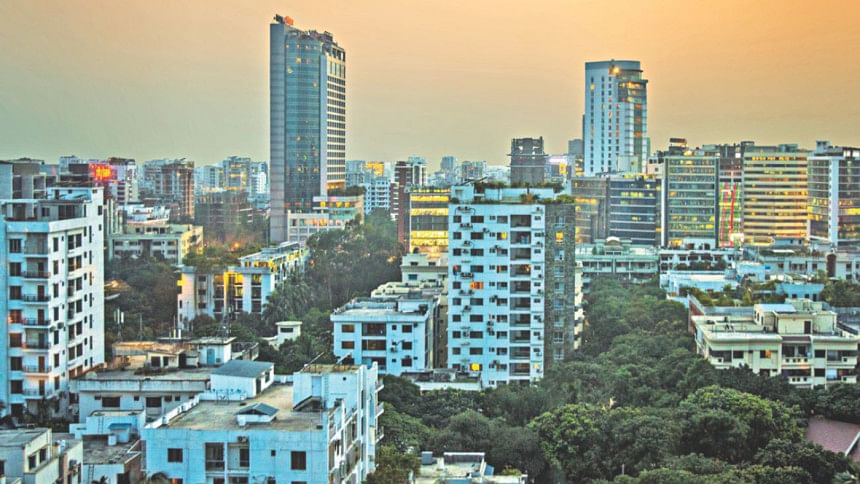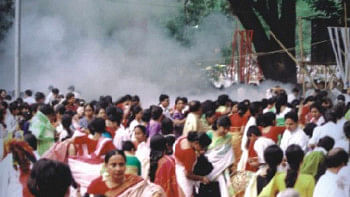Facing the challenges ahead

On March 16, at the UN, the Committee for Development and Policy (CDP) in its First Triennial Assessment meeting cleared Bangladesh's eligibility for graduation to a developing country. After our independence in 1971, what could be more glorious than this announcement, since Bangladesh was once despised by Henry Kissinger as a "bottomless basket." Now, this is the moment of truth, rejoice and celebration—Kissinger was wrong. It's indeed a matter of pride and self-esteem for the nation.
In the recent months, there were mixed reactions from the intelligentsia, think tanks, civil society members and professionals about Bangladesh's capability to surmount the challenges ahead.
Unquestionably, Bangladesh will lose benefits of LDCs in terms of DFQF (Duty-free, quota-free) market access, non-compliance of TRIPS (Trade-Related Aspects of Intellectual Property Rights) flexibilities and patent protection for pharma products. Export subsidy will have to be stopped. With the loss of all benefits upon graduation, Bangladesh will definitely face challenges in terms of competitiveness in the global market. However, under WTO, during the transition phase, Bangladesh will continue enjoying preferential market access, longer transition periods to implement WTO agreements, flexibilities regarding WTO rules, and priority in receiving technical assistance.
Interestingly, Bangladesh will lose benefits only after CDP's Second Triennial Assessment in March 2021. Then, it will get a transition time of three years, meaning Bangladesh will continue with all benefits till 2024. EU—the largest trading bloc for Bangladesh will allow another three years (till 2027). Thus, Bangladesh will have 5-8 years to be fully prepared to brave the challenges.
Traditionally, Bangladesh with other LDCs, have been claiming "supply side constraints"—pertaining to infrastructure, sea and land ports, technology, capacity building, etc.—as the main obstacles to its competitiveness and sought 100 percent DFQF, more FDI (foreign direct investment), and technology transfer for export promotion and creating jobs for economic development. The US, still the biggest single market for Bangladesh, was not pleased about this. Bangladesh was, however, not deterred but exploited benefits of TRIPS flexibilities and particularly DFQF offers (with varied Rules of Origin) of other countries, trading blocs and succeeded to triple its export (USD 35 billion) within a decade.
Most importantly, Bangladesh has been fortunate with its top political leadership under Prime Minister Sheikh Hasina who formulated Vision 2021.
Graduation will not necessarily pose only challenges. It also offers benefits. It will immediately offer benefits of credit worthiness, more potential for foreign investment, reduce volatility for flagship project financing, increased investment, job creation and revenue through protection of intellectual property, and above all, pave the way for joining the club of developed economies by implementing Vision 2041.
As a developing country, Bangladesh will still have more time to open up its economy like other developing countries. But, the challenge is its capability to compete with developing countries in terms of market access, attracting investment, infrastructure and skill development. However, there has always been an opportunity to reach out to other countries bilaterally or through WTO Committees to explain the difficulties pertaining to graduation and seek dispensation.
Bangladesh should actively consider implementing its commitments pledged through Trade Policy Review mechanism in WTO (though they are not compulsory) for its own benefit by improving infrastructure, automation, skills, and bringing legal and administrative reforms. The Trade Facilitation Agreement, which Bangladesh has ratified, is also an area to look into for proper implementation.
Simply put, Bangladesh needs to improve the infrastructure and services of its sea ports, have at least one or two operational deep sea ports by 2021, diversify its export basket and market, seek to attract more domestic and foreign investment, properly implement "one step service", etc. Bangladesh still has some leverage to maintain its competitiveness, but it immediately needs to minimise its cost of production and transportation time and cost by improving various aspects of its supply chain.
To overcome the potential challenges, the government has already assigned the External Economic Resources Division to carry out impact assessment and the General Economic Division (GED) of Planning Commission to map and prepare a plan of action, in consultation with all the ministries, on a priority basis. The Ministry of Commerce is also conducting its own assessment, like it did in the case of preparing for the implementation of SDGs.
Most importantly, the business community led by the FBCCI is accustomed to conducting their own impact assessments. Think tanks have also been preparing "policy briefs" for the government on issues that concern our economic interests. Taken together, these things will definitely strengthen the government's capacity to understand the enormity of the challenges at hand and address them appropriately through policy and strategies within the limited transition period.
As Abul Kalam Azad, the Principal Coordinator for Sustainable Development Goals (SDG) Affairs in the Prime Minister's Office assured the business community in a meeting on the graduation, hosted by FBBCI on March 15, 2018, that the government will do everything possible to overcome the challenges. "If Bangladesh could clinch independence in nine months, the government will also succeed (in facing the challenges) within the next 5-7 years," he said. Making Vision 2021 a reality is a testimony of that claim.
Md Abdul Hannan is a former Bangladesh Ambassador to the UN (Geneva), UK and Oman.





Comments